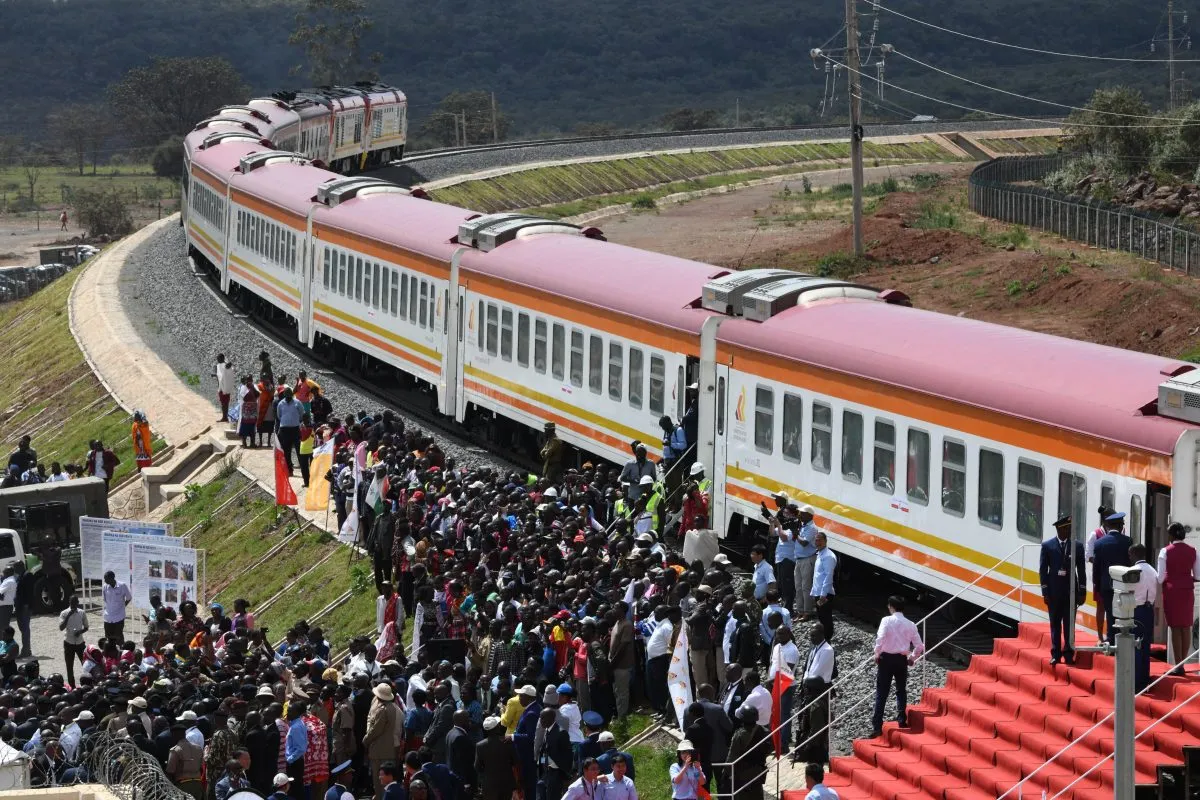According to a study by the United Nations Environment Programme (UNEP), 78% of Africans commute to work on foot, and a fifth of the population spends nearly an hour walking or cycling to reach their destination due to a shortage of efficient and safe transport. In a continent where 65% of roads have no pavement, people and animals roam freely on the street, causing accidents as they intersect with buses, trucks, or cars refusing to kill their speed.
African cities need more mobility solutions
On the busy streets of Dakar, it is not uncommon to see urban dwellers spill into the streets in long lines, competing for a place on overcrowded public buses. It’s not just commuters that are impacted by a lack of mobility solutions, businesses and economies are equally constrained by huge gaps in infrastructure that prevent the efficient movement of services and goods.
Ports play a critical role in the movement/trade of goods and, according to the World Bank, Africa’s ports rank among some of the lowest performers in the world in terms of container capacity and modernised solutions. As a result, many African businesses experience costly delays in importing and exporting goods, inhibiting their ability to expand their footprint and benefit from increased access to markets.
New mobility solutions are emerging
Despite the challenges, innovative solutions from a wide variety of actors including private companies, governments and development partners are beginning to emerge. Indeed, if mobility is seen with a wider lens as an infrastructure solution that can deepen the connections between people, goods and places, then investing with a mobility mindset will help accelerate the pace at which Africa’s infrastructure gap is finally closed.
One example is tech companies, which view the lack of mobility as a business opportunity to bridge the gaps in infrastructure and services with direct-to-consumer solutions. From food delivery or ride-hailing apps in Ghana or Nigeria to drones delivering medicine in Rwanda, start-ups have rolled out innovative solutions that bring people closer to the services they need. This “revolution” is happening across Africa and at a pace that is unseen anywhere else in the world.
Public-private partnerships (PPPs) have been rising across Africa to help bring large infrastructure projects to fruition, in sectors from airports to water supply. The combination of public and private entities creates an effective risk sharing arrangement, which incentivises both parties to invest, opening up new opportunities for investors while allowing governments to benefit from private sector expertise and financing and deliver key infrastructure for the public.
The PPP between the Republic of Congo, the Democratic Republic of Congo, and the Economic Community of Central African States to build a road-rail bridge between Kinshasa and Brazzaville is an important example that will maximise cross-border and regional trade, and increase movement of people, goods and services between Brazzaville and Kinshasa. The 1.5 km toll bridge over the Congo River will also secure direct savings in the costs of operating vehicles, yield time savings for road users and significantly decrease traffic accidents.
With the constraints on government expenditure in many African countries, private capital can be deployed – through direct investments in businesses or through partnerships with governments and DFIs – to solve complex mobility issues, particularly those affecting economic opportunities, the environment, health, or self-reliance.
Private capital must step in to plug the gap
Infrastructure enabling the processing of critical minerals for the energy transition, such as access roads and transmission lines, is also a core component of investing in mobility. A consortium of investors led by the US, called the Partnership for Global Infrastructure and Investment initiative, signed a memorandum of understanding in 2023 to mobilise investment for the Lobito Corridor.
The project extends across Angola, Zambia, and the DRC to construct an open-access rail line from the Atlantic to the Indian Ocean. Upon completion, the project will support the development of sustainable and resilient value chains of critical raw materials while creating quality local jobs and catalysing regional and global trade.
We also need to invest in social mobility and open up restricted access to, from and within urban centres for youth or women; these groups lack safe ways to travel when it is late or for work. Last year, the private infrastructure development group the Emerging Africa Infrastructure Fund, managed by Ninety One, committed $50m to help fund a fleet of 121 electric buses that will revolutionise Dakar’s public transport system, reducing emissions while easing traffic congestion and improving road safety. The landmark project signifies a first for Africa as the continent’s only all-electric public bus network, designed to reduce travel time across the city by 50 minutes and carbon dioxide emissions by 59,000 tonnes annually.
The growth of Africa’s population from approximately 1.3bn to 2.5bn by 2050 underscores the urgency to invest in infrastructure, enabling mobility across the continent and providing multiple routes to securing commercially sound returns. That said, the large gap in mobility infrastructure across African countries means that, despite investor interest, funding remains a challenge as investors are not yet meeting the scale of demand.
The region needs more private investment in mobility to deliver the development gains required as rural-urban migration increases, cities swell in size, and the speed of demographic shifts accelerates. Investing in economic mobility is a powerful way to improve social inclusion, drive climate action and boost productivity.
Want to continue reading? Subscribe today.
You've read all your free articles for this month! Subscribe now to enjoy full access to our content.
Digital Monthly
£8.00 / month
Receive full unlimited access to our articles, opinions, podcasts and more.
Digital Yearly
£70.00 / year
Our best value offer - save £26 and gain access to all of our digital content for an entire year!

 Sign in with Google
Sign in with Google 



